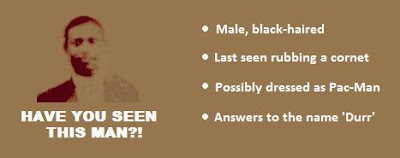 Coming Through Slaughter frequently has off-beats, awkward shards of text placed in weird place such as the following: "The woman is cutting carrots... If she thinks what she is doing she will lose control. He knows that the only way to catch a fly for instance is to move the hand without the brain telling it to move fast, interfering." (p.31)
Coming Through Slaughter frequently has off-beats, awkward shards of text placed in weird place such as the following: "The woman is cutting carrots... If she thinks what she is doing she will lose control. He knows that the only way to catch a fly for instance is to move the hand without the brain telling it to move fast, interfering." (p.31)
After reading through the book and coming upon this part again, I found this seemingly random part not as random. In fact, the whole book, which seemed to be arranged in a rather 'drunk' fashion, was not random at all.
I'll get back to that statement in a second. For now, let us concentrate on the carrots.
Actually, never mind. Let me talk about Buddy Bolden's lifestyle.
Buddy, both a barber and a jazz player, is a very eccentric man. He seems to be the kind of guy that would be able to swoosh off whatever hits his face, whether it be a break-up, a death, or a pie.

Anydope, Buddy is always in the 'now', with no concerns for the future or recognition of the past. According to Crawley, "he doesn't talk about his past... he's only concerned with the next ten minutes of his life."
Everyone who had known Buddy would agree that if one hasn't "heard him play some place where the weather for instance could change the next series of notes - then you should never have heard him at all." (p.37) Well, he doesn't seem to be a planner, does he? I couldn't have described him better than Frank Lewis did: "He was never recorded."
Back to the carrots.
It is only when one does not think about things deeply that they can manage to do it.
One cannot cut carrots if one is too intent on the act of cutting. You know how you always mess up on the things you think you're going to mess up? Well, think less.
So why did Buddy lose control?
*insert smooth jazz music*

Speaking of jazz, let's get back to how the book's form is actually not random. Putting it simply, the whole book is jazz. The seemingly random bits and pieces form what closely resembles jazz music. It's like as if the chorus is Webb's search and the verses are Bolden stuff. Throughout the novel, the story just seems to fluctuate as if it were musical notes. The song doesn't make sense until the song is over, until you finally get that time to organize and think about whatever you just heard.
Oh, great. Now I have to think about how to wrap this blog post up.
Um...



